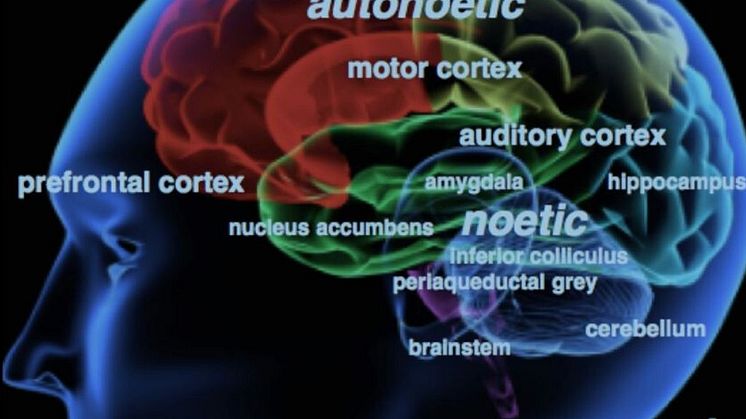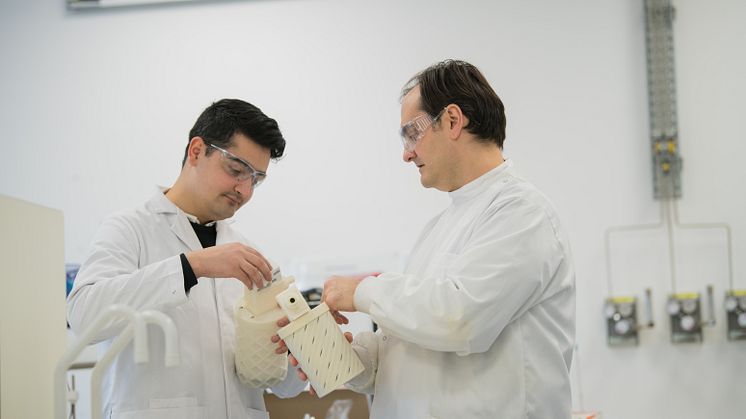
Press release -
Academics join global study into COVID-19 loss of smell
People who have recently experienced loss of smell are being urged to participate in a survey as a new global research group investigates the symptom as a marker of COVID-19.
Health organisations across the world have recognised anosmia – the loss of smell – as an indicator of COVID-19, following a wave of reports from patients and clinicians about rapid onset of smell loss, even in the absence of other symptoms.
Scientists worldwide, including experts at Northumbria and Newcastle universities, have now united as the Global Consortium of Chemosensory Researchers (GCCR) to investigate the connection between the chemical senses and the COVID-19 virus.
Anyone who has recently experienced symptoms of respiratory illnesses or smell loss is urged to complete a 10 minute survey which can be found on the GCCR website.
Hundreds of scientists
Professor Vincent Deary, Professor of Applied Health Psychology at Northumbria University, and Dr Duika Burges Watson, from the Faculty of Medical Sciences at Newcastle University, are part of this group of more than 600 clinicians, neurobiologists, data scientists, cognitive scientists, sensory researchers and technicians from over 50 countries.
Dr Burges Watson said: “Anecdotal reports are increasingly being supported by scientific findings demonstrating smell loss is a symptom of COVID-19 that clinicians and policy makers should be paying attention to.
“Newcastle experts have joined the consortium to help in firming up the scientific evidence of anosmia as a symptom of COVID-19.
“We are also leading in emphasising the importance of patient and public involvement in the GCCR through our membership of their Patient Advocacy Committee, alongside charitable organisations such as AbScent and Fifth Sense.
“The sudden loss of smell and taste may be very distressing for sufferers and we are keen to support people dealing with this and to draw attention to the impact sensory losses in COVID-19 and other conditions.”
The GCCR will use data collected in a global survey to unravel key markers of the virus in order to further understand how to prevent its spread. The survey has been translated into more than 20 languages and is available to individuals and clinicians on the GCCR website.
Professor Deary said: “We really want to highlight the fact that reports from across the world, including from the King’s College London symptom tracker app, are showing smell and taste loss as a symptom that clinicians need to pay attention to in relation to COVID-19.
“Dr Burges Watson and myself are also interested in the longer term impact of smell and taste loss for those who have recovered from COVID-19. Do the deficits in smell and taste also recover, and if not, are their interventions that can improve, or compensate for, smell and taste loss?
“Amidst all that is happening this may seem like a minor point, but from our research in other illnesses we know that loss of smell and taste can have a profound impact of daily life and wellbeing.”
Altered Eating Research Network
Dr Burges Watson and Professor Deary join the GCCR after their recently published letter in the British Medical Journal (BMJ), urging for more attention to be given to anosmia as a symptom of COVID-19. Professor Deary is a practitioner health psychologist and a practicing cognitive behavioural therapist. Both have a particular interest in altered relationships with food and eating, including loss of smell and taste.
Following a National Institute of Health Research funded grant examining changed relationships with food after head and neck cancer, Dr Burges Watson and Professor Deary established the Altered Eating Research Network as a public interface for the many whose difficulties with food and eating are under-recognised and unsupported.
Find out about Psychology at Northumbria and browse our list of Psychology courses.
Topics
Categories
Northumbria is a research-rich, business-focused, professional university with a global reputation for academic excellence. Find out more about us at www.northumbria.ac.uk --- Please contact our Media and Communications team at media.communications@northumbria.ac.uk or call +44 (0)191 227 4604 with any media enquiries or interview requests.










